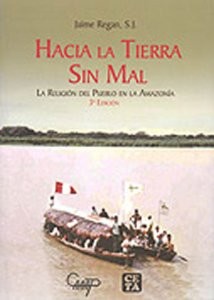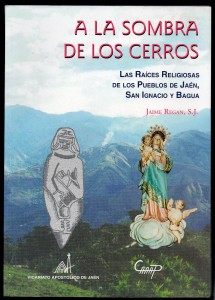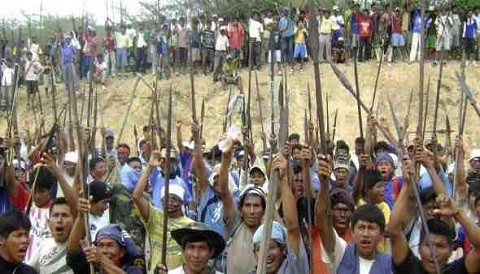 The Amazon rainforest has always been a land filled with mystery since its ‘discovery’. Ranging from the first expedition of the conquistador Francisco de Orellana, to the establishment of Jesuit missions across the Marañon river, and the naturalistic explorations of Humboldt and la Condamine, it still feels as if it has more to be known.
The Amazon rainforest has always been a land filled with mystery since its ‘discovery’. Ranging from the first expedition of the conquistador Francisco de Orellana, to the establishment of Jesuit missions across the Marañon river, and the naturalistic explorations of Humboldt and la Condamine, it still feels as if it has more to be known.
This was also the case for the earliest ‘ethnographic’ records of Gaspar de Carvajal and Francisco de Figueroa . As was often the case with Spanish chroniclers, they ‘misunderstood’ the ‘indigenous’ way of thinking, in some cases even labeling them as atheists (Regan: 2015). In time, this would change, in part because of the continuing social interaction (between missionaries, laymen, other indigenous groups, and so on) but also in more recent times, because of the ethnographic research undertaken by many different anthropologists. This has enabled a more comprehensive knowledge about the beliefs and way of life of the Amazonian indigenous people. In this podcast, Dr Jaime Regan Mainville, a leading researcher in the anthropology of religion and linguistics, discusses his ethnographic research among some of the indigenous peoples of the Amazon basin; namely the kukama, the awajún, and the wampís, among others.
Podcast: Play in new window | Download | Embed
Subscribe: RSS
Regan argues that one particular characteristic of Amazonian belief is highlighted above the rest: close links with the environment. Amazonian identity and belief systems are articulated into what Philippe Descola and other anthropologists have regarded as animism (Regan: 2015). Of course, these beliefs haven’t remained ‘untouched’ or ‘pure’, but have been particularly influenced by encounters with Jesuits and Franciscans during the sixteenth century. The interview continues to focus upon some of the impacts of this these encounters upon existing belief systems, practices and cosmologies (cf. Regan: 2001).
 In the final part of the interview Regan states that the indigenous way of life has drastically changed, because of the Peruvian state’s oil exploration policy s, combined with illegal mining and logging. For example, in the case of oil exploration, in June 2009 the “Baguazo” or Bagua conflict took place in part due to failed attempts at consultation and negotiation between with indigenous leaders of the Amazon region (mostly awajún and wampís) and the Peruvian state: Regan traces this to a conflict of worldviews (Regan: 2010).
In the final part of the interview Regan states that the indigenous way of life has drastically changed, because of the Peruvian state’s oil exploration policy s, combined with illegal mining and logging. For example, in the case of oil exploration, in June 2009 the “Baguazo” or Bagua conflict took place in part due to failed attempts at consultation and negotiation between with indigenous leaders of the Amazon region (mostly awajún and wampís) and the Peruvian state: Regan traces this to a conflict of worldviews (Regan: 2010).
Listeners might also be interested in our previous podcasts on Andean Religion in Peru, Vernacular Religion, and the category of “indigenous religion”. You can download this interview, and subscribe to receive our weekly podcast, on iTunes. If you enjoyed it, please take a moment to rate us . And remember, you can use our Amazon.co.uk, Amazon.com, or Amazon.ca links to support us at no additional cost when buying academic texts, stuffed animals, gobstoppers, and more..
References
- García, A. (2007). “The dog in the manger síndrome”. Peruvian Times. Lima. Accesed on: 28 november 2015. http://www.peruviantimes.com/30/president-alan-garcias-policy-doctrinethe-dog-in-the-manger-syndrome/2860/
- Regan, J. (1983). Hacia la tierra sin mal. Estudio sobre la religiosidad del pueblo en la Amazonía. Lima: Centro de Estudios Teológicos de la Amazonía (CETA).
- Regan, J. (2001). A la sombra de los cerros. Las raíces religiosas de los pueblos Jaén, San Ignacio y Bagua. Lima: Centro Amazónico de Antropología y Aplicación Práctica (CAAAP).
- Regan, J. (2010). “Los awajún y wampís contra el Estado: una reflexión sobre antropología política”. Accesed on: 16 october 2015.http://sisbib.unmsm.edu.pe/bibvirtualdata/publicaciones/inv_sociales/N24_2010/pdf/a02.pdf
- Regan, J. (2015). “De ‘ateístas’ a cristianos: las reducciones jesuitas de Mainas de los siglo XVII y XVIII”. Creer o no creer La fe en tiempos de transición. Lima: Universidad Antonio Ruiz de Montoya, pp. 103-123.
- Regan, J. (2015). “El aporte de los espíritus a tres pueblos amazónicos”. Estructura Salvaje. Lima, año 4, número 4, pp. 197-210.






